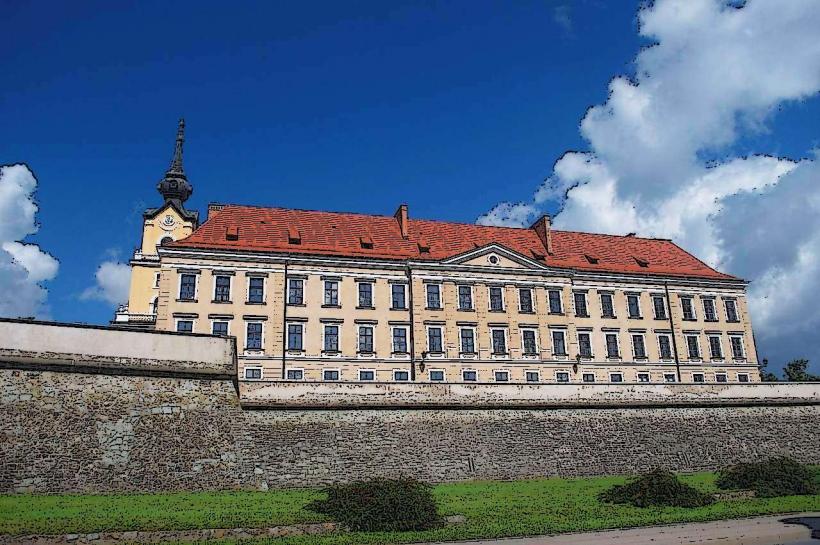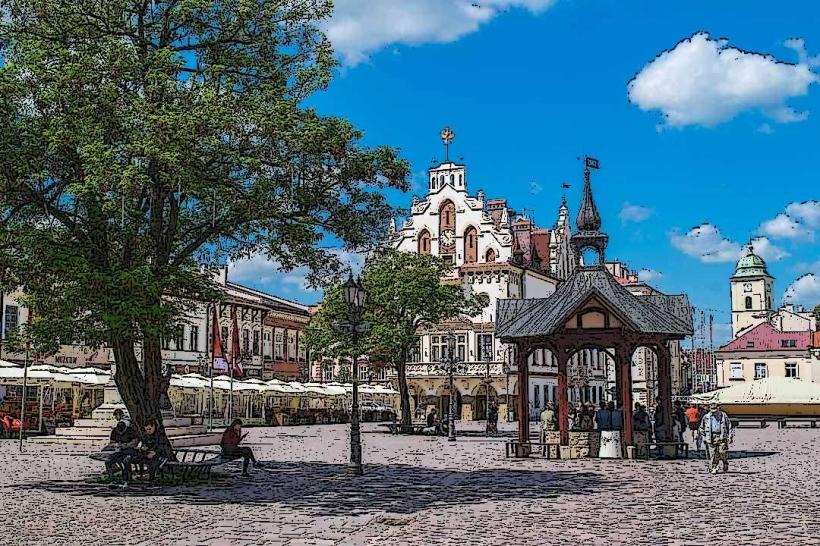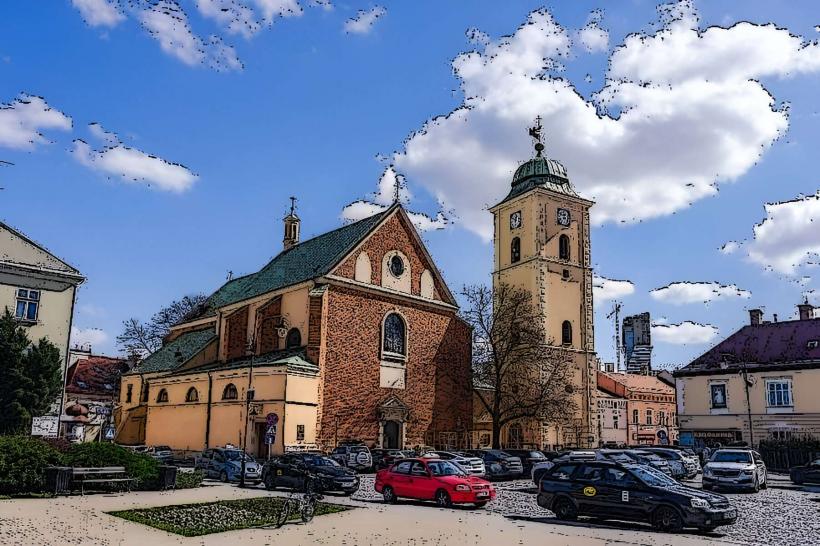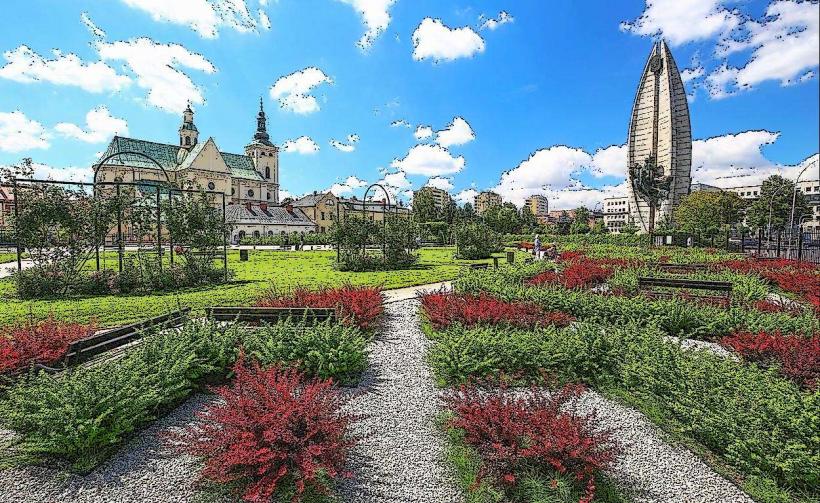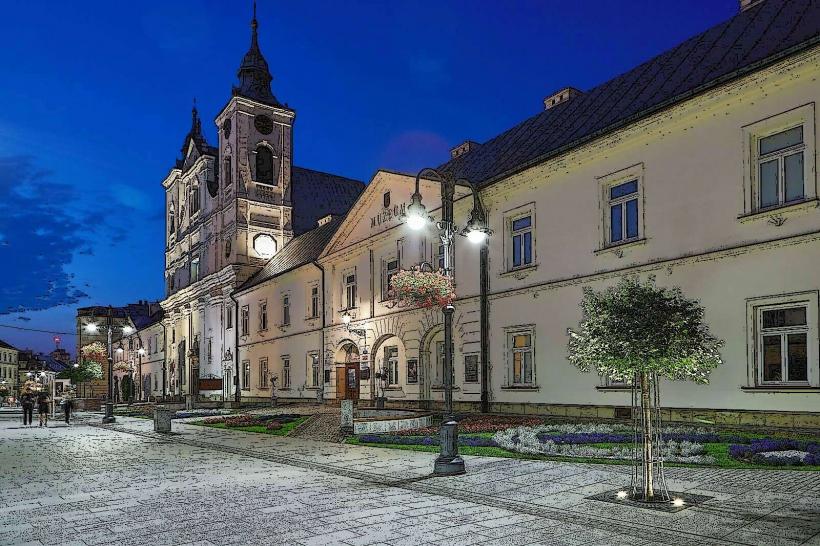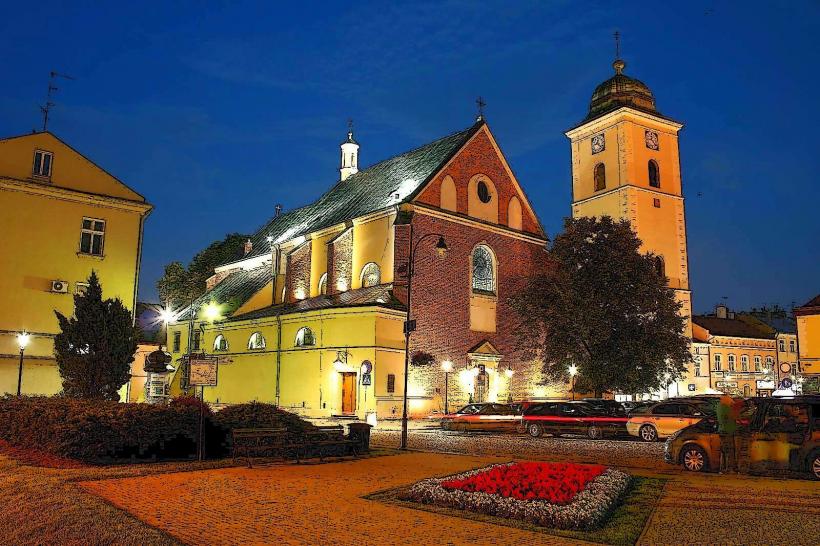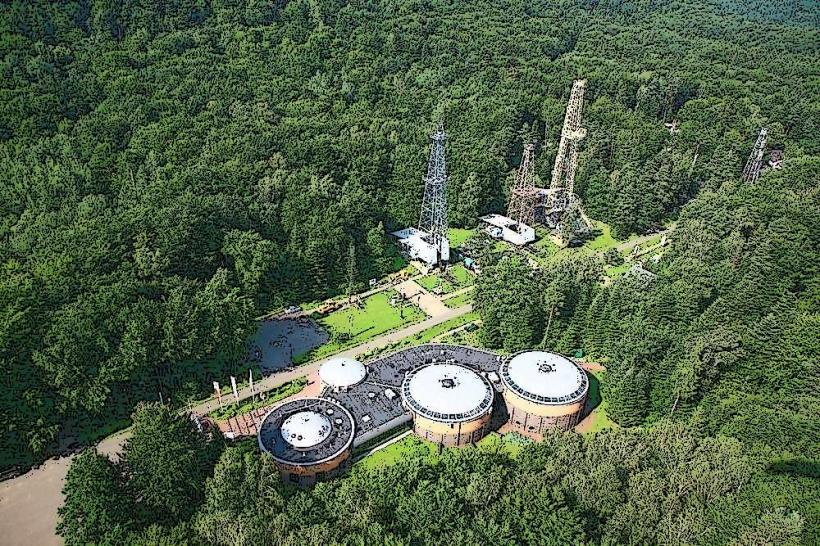Information
City: RzeszowCountry: Poland
Continent: Europe
Rzeszów is a vibrant city in southeastern Poland, located on the Wisłok River. As the capital of the Subcarpathian Voivodeship, Rzeszów is an important regional hub known for its growing economy, educational institutions, historical significance, and cultural heritage.
History
Rzeszów’s history dates back to the 14th century when it was first mentioned in written records as a small settlement. It gained town privileges in the late Middle Ages, and its strategic location along trade routes between Cracow and Lviv helped it develop over the centuries. The city was part of several different political entities throughout history, including the Kingdom of Poland, the Austrian Empire, and the Austro-Hungarian Empire.
During the 19th century, Rzeszów developed rapidly under the Austrian rule, becoming an important center for trade, crafts, and industry. After World War I and the establishment of the Second Polish Republic, Rzeszów became part of Poland and continued its development, although it was significantly impacted by World War II and later by the communist regime.
Since the fall of communism in 1989, Rzeszów has experienced significant economic growth, particularly in the technology, aviation, and services sectors. It is now considered one of the most dynamic cities in southeastern Poland.
Geography and Layout
Rzeszów is located in southeastern Poland, approximately 160 kilometers from the Ukrainian border and about 300 kilometers southeast of Kraków. The city is situated on the Wisłok River, which flows through its center, adding to its scenic charm.
The city’s layout is a combination of historical and modern architecture. The Old Town retains its medieval charm, while much of the newer development, including residential areas and business districts, is located in the northern and western parts of the city. Rzeszów is surrounded by hills and forests, making it an attractive destination for those seeking both urban amenities and access to nature.
Economy
Rzeszów has evolved from a regional market town into a major economic center in southeastern Poland. While traditionally known for textile manufacturing, crafts, and agriculture, the city has undergone significant industrial diversification in recent years.
One of Rzeszów’s most important sectors is aviation and aerospace. The city is home to Rzeszów-Jasionka Airport, a regional airport that handles both passenger and cargo flights. The nearby Aviation Valley (Dolina Lotnicza) has become a hub for the aerospace industry, with numerous aviation companies and research centers based in and around Rzeszów, including General Electric Aviation and Sikorsky. This has attracted international investment and made Rzeszów a leader in Poland’s aerospace sector.
Additionally, Rzeszów is growing as a center for information technology, biotechnology, and manufacturing. It has become a regional leader in business services, with several global companies establishing offices in the city. Business process outsourcing (BPO) and IT services are also significant drivers of the local economy.
Education and Research
Rzeszów is an important center for higher education, offering a range of programs in the sciences, humanities, engineering, and technology. Key institutions include:
- Rzeszów University of Technology: One of Poland’s leading technical universities, specializing in engineering, IT, and aviation. It has strong ties to the aerospace industry and offers several programs related to aviation technology and engineering.
- University of Rzeszów: A multidisciplinary university offering programs in the humanities, social sciences, and natural sciences.
- Rzeszów University of Economics: Focused on business, economics, and finance education, contributing to the city’s growing role in finance and commerce.
These institutions play a key role in the city’s development, providing a skilled workforce and driving research and innovation. Rzeszów also hosts several research centers, particularly in the fields of aerospace technology, biomedicine, and materials science.
Culture
Rzeszów has a rich cultural heritage, with numerous museums, theaters, and music institutions. The city’s cultural life is vibrant, and it celebrates a variety of traditions, from folk and classical music to contemporary art.
Key Cultural Institutions
- Rzeszów Regional Museum: Housed in a historic building, this museum features exhibits on the city’s history, the culture of the region, and archaeological findings.
- Theatre of the Rzeszów Province: A major theater in the city that hosts a variety of performances, from classic plays to contemporary productions.
- Rzeszów Philharmonic: An important cultural institution in the city, offering classical music performances and fostering local talent.
- Gorczycki Palace: A historic venue for concerts and cultural events, named after the Baroque composer Grzegorz Gerwazy Gorczycki.
Rzeszów also hosts several cultural festivals, including the Rzeszów International Festival of Folk Music and Dance, which celebrates the traditional folk music of the region. The Rzeszów Jazz Festival and Carpathian Festival of Films are also key events on the cultural calendar.
Public Transport and Infrastructure
Rzeszów has a well-developed public transport system, including buses, trams, and trolleybuses. The city is also well-connected by road, with major highways linking it to other Polish cities, as well as the Ukrainian border.
Rzeszów-Jasionka Airport serves as the city’s main airport, offering domestic and international flights. The airport plays a key role in the city’s economic growth, particularly in the aerospace sector. Additionally, the Rzeszów Railway Station connects the city to other parts of Poland, making it easy for residents and visitors to travel to Kraków, Warsaw, and Lviv.
The city has made significant improvements to its infrastructure in recent years, including modernizing roads, expanding housing, and developing business and retail centers. Rzeszów has also worked to improve its pedestrian infrastructure and cycling paths, making the city more accessible and environmentally friendly.
Green Spaces and Outdoor Activities
Despite being a growing urban center, Rzeszów offers plenty of green spaces and outdoor activities for its residents. Some notable outdoor areas include:
- Rzeszów City Park: A large park in the heart of the city, providing green space for walking, cycling, and relaxation.
- Wisłok River Walkway: A scenic path along the Wisłok River, ideal for jogging, cycling, or simply enjoying the view of the water.
- Baranówka Nature Reserve: A protected natural area located just outside of the city, offering hiking opportunities and a chance to explore the region’s local flora and fauna.
- Pawlikowska Park: A small but charming park located near the city center, offering a peaceful environment for recreation.
Rzeszów’s green spaces provide a balance between urban living and access to nature, making it an attractive city for families and outdoor enthusiasts.
Modern Development and Urbanism
Rzeszów has undergone significant urban development over the past few decades. The city has embraced modern architecture, with new office buildings, shopping malls, and residential complexes being built alongside historical sites. The Rzeszów City Centre is bustling with cafes, restaurants, and cultural institutions, while new developments are popping up on the city’s outskirts.
A key area of development in recent years has been the Podkarpackie Science and Technology Park, a hub for innovation and technology-based companies, particularly in the aerospace and IT sectors. The park fosters collaboration between businesses, universities, and research institutions to drive the region's economic growth.
Challenges
Rzeszów faces challenges associated with rapid urbanization, such as traffic congestion, maintaining green spaces, and ensuring sustainable development. The city is working on solutions to address these issues, including improving its public transport system, reducing air pollution, and expanding pedestrian-friendly spaces.
Future Outlook
Rzeszów is well-positioned for continued growth, particularly in the aerospace, technology, and education sectors. The city's strong economic performance, skilled workforce, and proximity to the Ukrainian border make it an attractive location for investment and innovation. As Rzeszów continues to grow, it will likely become a key player in southeastern Poland’s economic and cultural development.
The city is also focusing on sustainability, urban renewal, and improving the quality of life for its residents. With its growing business sector, educational institutions, and cultural offerings, Rzeszów is becoming an increasingly important center of commerce, education, and culture in Poland.

